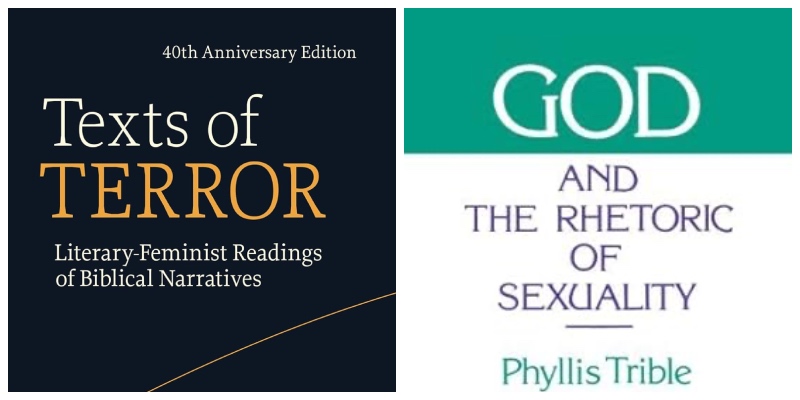Author of two 'influential and astonishing books'
Andy Goodliff pays tribute to Phyllis Trible, who was at the forefront of feminist biblical scholarship

Earlier this year two of most important biblical scholars of the last 40 years died — Richard Hays and Walter Brueggemann. We now learn that a third has died: Phyllis Trible, aged 92.
Trible was brought up among Southern Baptists, but the moderate sort. Her minister encouraged her to study for her doctorate at Union Theological Seminary. She taught in Baptist related schools — Wake Forest and Andover Newton, before becoming a Professor at Union, which has published this tribute.
Trible’s contribution to biblical studies, and in particular the Old Testament, is demonstrated in two books published in 1978 and 1984. Their titles were God and the Rhetoric of Sexuality and Texts of Terror. She was at the forefront of feminist biblical scholarship.
One Jewish colleague described Trible as ‘a feminist and a formidable reader of Scripture’ and who ‘produced and inspired some of the profoundest midrash in this century. An entire generation of midrashists follows in her wake’ (Burton L. Visotzky, Reading the Book, 1991).
God and the Rhetoric of Sexuality was an engagement with the study of God and humanity from a feminist perspective. Acknowledging the ‘dominance of male language in scripture,’ Trible saw herself like the woman in Jesus’ parable light a lamp, sweeping the house, and searching diligently for that which was lost, namely the Bible’s ‘female imagery and motifs.’
In the second half of the book she offers a close reading of Genesis 2-3, Songs of Songs, and the book of Ruth, bringing new insights to familiar passages.
Texts of Terror, which is the more famous, has been reprinted multiple times, including being part of the SCM Classic series and also a special 40th anniversary edition. The book was for Trible a companion to God and the Rhetoric of Sexuality, but where the former was ‘a time to laugh and dance’, Texts of Terror signalled ‘a time to weep and mourn.’
It is an engagement with four stories which depict violence or abuse against women — Hagar, Tamar, the unnamed woman (in Judges 19), and the daughter of Jephthah — texts of terror. Again with a close reading of these texts, Trible tells these woman’s stories, letting them being heard in their own right, letting them be heard in their brutality, letting other scriptures respond, without letting them simply be redeemed. She suggested they were the ‘unpreached stories of faith.’ In her study, she confronted the church to remember these women.
These two influential and astonishing books in their joy and terror should be required reading for every person being formed for Baptist ministry.
Ten years ago, aged 82, Trible, looking back on her life, wrote:
'The more I wrestle with Scripture — from childhood memory verses and sword drills to critical methods of reading — the more perplexing, challenging, and mysterious does faith became. The Bible offers words malleable yet stable, conflicted yet trustworthy, confusing yet clarifying. Text by text I struggle on.
My love for the Bible requires and supports the task; my feminist perspective challenges and inspires the task. But I am under no illusion that the struggle will bring a smooth ending, that any blessing will come on my terms. Repeatedly, the Jacob story resonates.
('Wrestling with the Words, Limping to Light’ in I (Still) Believe, Zondervan, 2015)
May Phyllis Trible rest in peace, and rise in glory.
Andy Goodliff is the minister of Belle Vue Baptist Church, Southend. He is a lecturer in Baptist History at Regent's Park College, Oxford
Do you have a view? Share your thoughts via our contact form
Baptist Times, 05/11/2025